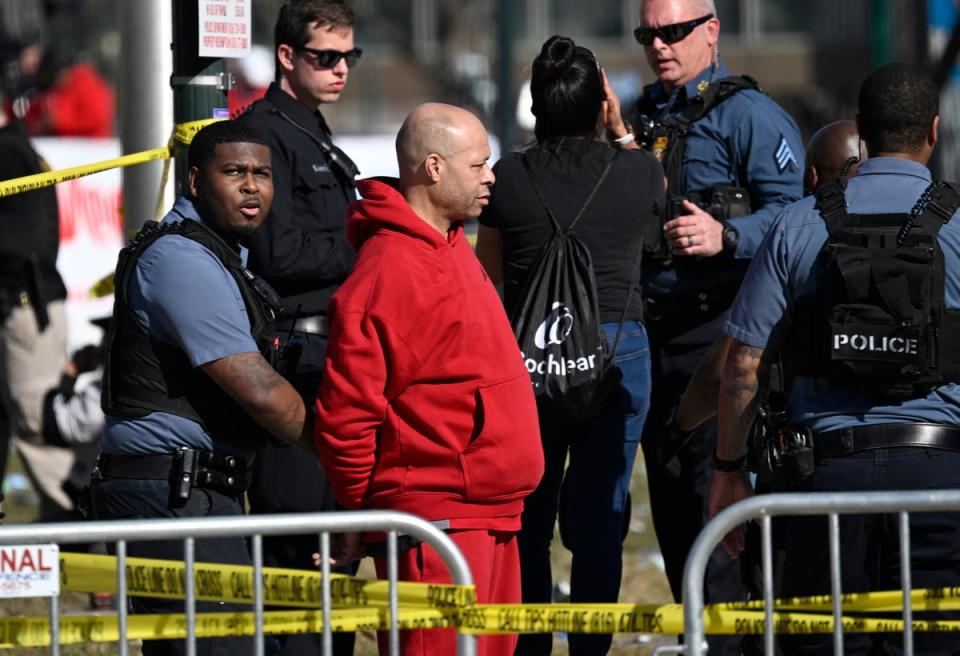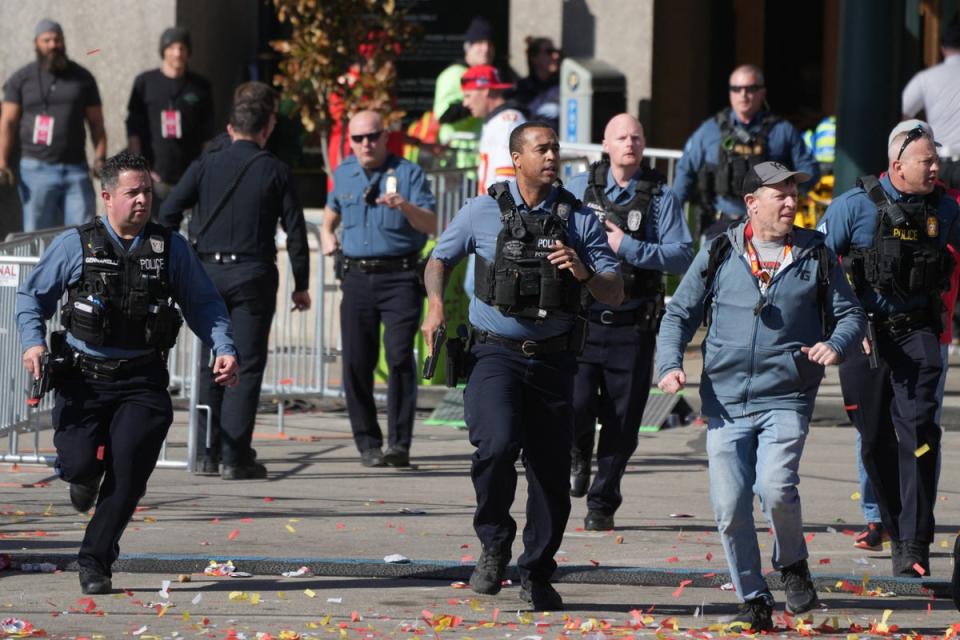Kansas City shooting: What are the gun laws in the state of Missouri
At least one person was killed and multiple other victims were wounded after a shooting at a Super Bowl victory parade in Kansas City, Missouri.
Three suspects have now reportedly been detained in connection with the shooting on Wednesday.
“I’m angry at what happened today. People who came to this celebration should expect a safe environment,” Kansas City Police Chief Stacey Graves said at a press conference.
According to 2021 data from the Centers for Disease Control and Prevention, Missouri has the ninth-highest rate of gun deaths in the US.
It’s also one of the states with the highest rates of gun ownership. About 48.8 per cent of adults in Missouri own firearms, according to a 2020 study by the RAND Corporation.

Missouri’s gun laws are considered some of the laxest in the country, with the Giffords Law Center calling them “appallingly weak.”
No background check is required to purchase a firearm, nor is a permit for concealed carry. There is no ban on assault weapons.
There are also no restrictions on gun ownership for people who have been convicted of violent crimes, and firearms are not required to be locked up to prevent children from accessing them.

In 2021, Missouri enacted a law called the "Second Amendment Preservation Act," which made federal gun regulations illegal statewide, and prohibited law enforcement from enforcing any federal laws that “infringe on the people’s right to keep and bear arms.”
A federal judge later struck it down, having ruled the state law unconstitutional, and the Supreme Court upheld the decision.

